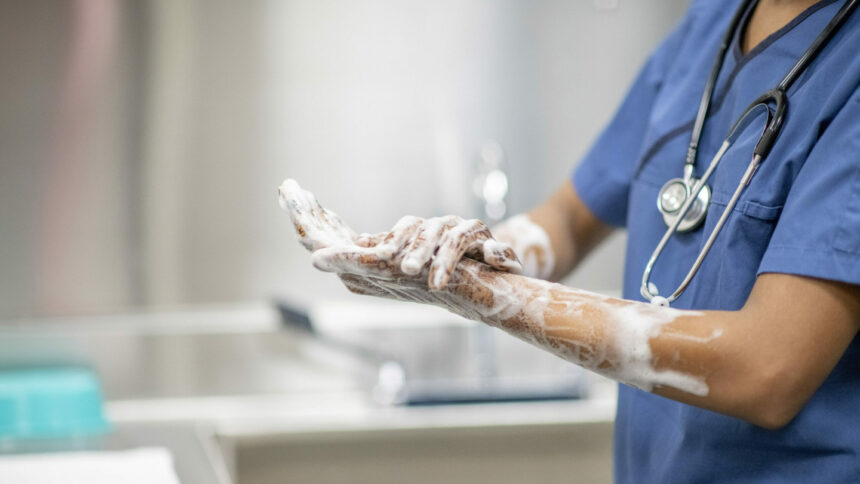
Two acute-care health systems have substantially improved employee hand hygiene compliance using technology that pinpoints missed opportunities and improves accountability.
That’s according to infection preventionists who presented their findings this week at the Association for Professionals in Infection Control and Epidemiology’s (APIC’s) annual conference in Orlando, FL.
The University of Michigan Health in Ann Arbor, MI, raised compliance rates as high as 98% by replacing an old system that used static charts with new dynamic electronic dashboards. Administrators across the system’s 1,100-bed campus were able to track worker compliance with business intelligence software that generated weekly and monthly reports, with comparisons by unit and role. Stakeholders were able to see missed opportunities, such as failure to perform hand hygiene before donning personal protective equipment.
Driving improvement
“The [business intelligence] software allowed us to pinpoint departments and shifts that were struggling and stratify data by role types so we could have more meaningful conversations to drive improvement,” Harry Zhen, MPH, CIC, infection preventionist at University of Michigan Health, said in a statement.
Similarly, Newark Beth Israel Medical Center in Newark, NJ, had success with a 56-week trial of an automated hand hygiene monitoring system (AHHMS), implemented in 2019.
The AHHMS, which senses opportunities for hand hygiene and counts dispenses of hand sanitizer, helped to increase compliance by an average of 98% over baseline across eight adult inpatient units, including 200 patient rooms. The hospital’s infection prevention team assisted in the intervention. Hand hygiene champions and unit managers shared real-time data daily with hospital leadership and during shift transitions.
“The automated monitoring system provides a level of accountability that is needed to supplement existing efforts and bring about a noticeable improvement in hand hygiene,” said infection preventionist Ndubuisi Eke-Okoro, MSc, CIC, who helped to implement the intervention.
An elusive goal
The success of the two programs is laudable and was not an easy feat, APIC 2023 President Patricia Jackson, RN, MA, CIC, FAPIC said in a statement. “Hand hygiene is the cornerstone of infection prevention, but achieving and sustaining high compliance is often elusive,” she said.
Related articles:
Effectiveness of hand washing hinges on how hands are dried, experts say
Gentle cleansers and harsh soaps equally effective at killing deadly viruses, study finds



